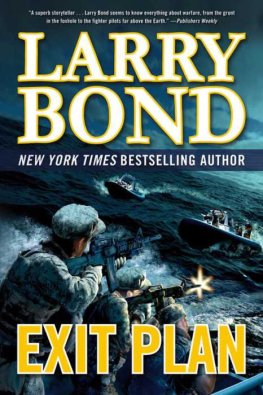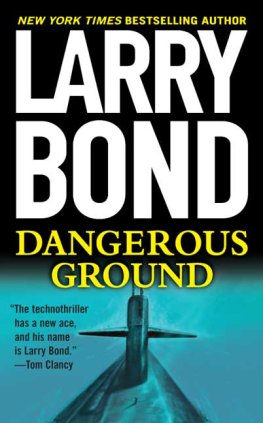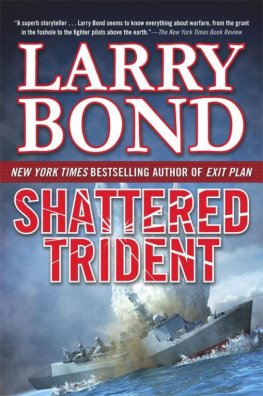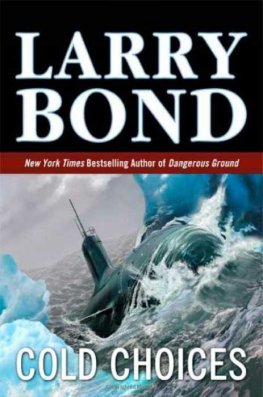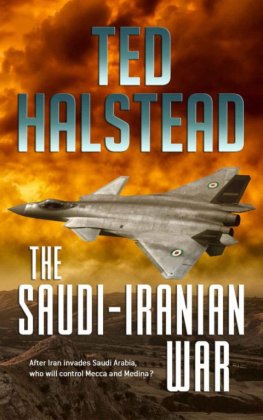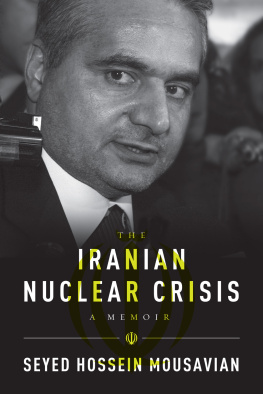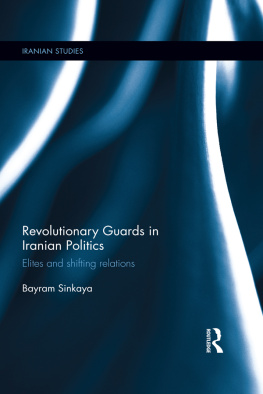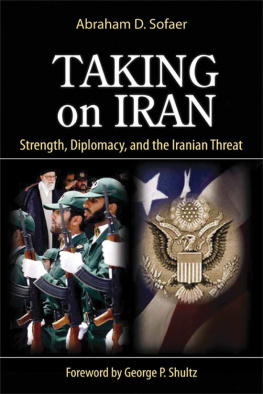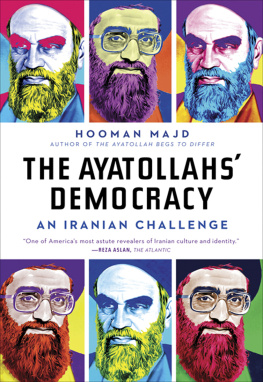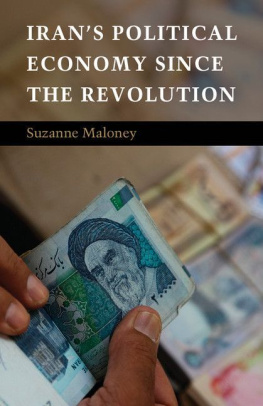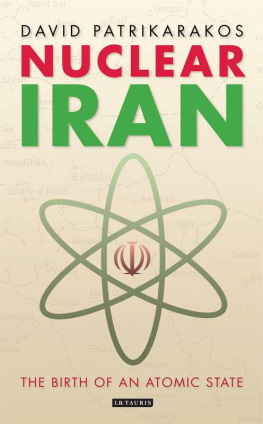
6 February 2013Uranium Pilot Enrichment Plant, Natanz, Iran
I smell smoke! Shirin Naseri, assistant engineer in the centrifuge-testing department, had opened the blast door into the test cell. Her superior, Dr. Davood Moham, quickly looked up, first with confusion, then irritation, and motioned for her to shut the door.
What is the problem now? snapped Moham. And why did you open the door?
I said, I smell smoke, replied Naseri patiently. She had to be careful of her tone; her boss was in one of his less collegial moods. A good engineer doesnt just look at the gauges, and my nose tells me something is overheating. We should shut down the test and find out whats wrong.
Moham slammed his clipboard on the console, making test technician Faraz Yazdi almost jump out of his seat. He stalked over to the blast door, muttering about fussy women, and yanked it open. The whirring din from sixty-four centrifuges engulfed them. Taking a deep sniff, his face soured even more. I smell nothing.
Its been six days, Doctor Naseri. Moham had used her title with contempt, as if it was a mistake. You thought we werent ready for this, that the design was still flawed. Its been six days, with no problems whatsoever, and now that its almost over, youre still looking for bad news.
Naseri shook her head. No, sir. I want this design to succeed, but Im very sensitive to smells right now, and
And pregnancy makes you smarter? Moham looked up, as if speaking to the heavens. Why did I ever think a woman would be useful?
Naseri, twenty-eight, was one of Mohams assistants. Shed done well enough in school to impress even the opinionated Moham. A petite and beautiful young woman, she was as outspoken as Yazdi was timid. The technician was still working on his doctoral thesis, and looked like a graduate student skinny, with a spare beard and pale complexion from spending too much time indoors. He was the nervous type, intimidated by Mohams reputation and Naseris competence, and had been especially wound up for days, ever since the final test had started. Naseri certainly was.
Moham, director of the centrifuge program, was their boss, but more than that, their beacon. Brilliant, arrogant, and charismatic, hed brought them and others as new blood into a program that Moham would redeem and save. Now, three years later, hed lost weight, and gray had appeared in the thirty-eight-year-olds jet-black hair and beard. His expression was just as intense as it was at the beginning, but now it wasnt all power and knowledge. He was also afraid.
This was the final test of their latest centrifuge design his latest design, and his last chance. None of the others had come this far, and if it passed, it meant success, vindication, reward. And failure meant more than just professional loss. Others in the nuclear program had been accused of sabotage or spying, never to be seen again.
All three stared through thick safety glass at the two rows of cylinders and piping, as if they could pull more information from the machines by gazing intently at them. The computer displays that filled the test console told them anything they wanted to know: revolutions per minute, gas flow, bearing temperatures any physical metric that they could imagine. After all, Moham and the others had designed the console. But did it tell them what they needed to know?
The brightly lit test cell appeared almost empty. Only a small fraction of the available floor space, designed to hold several hundred machines, was being used. The ceiling was heavily patterned with electrical cables, piping, and flexible tubing that supplied power, cooling water, and the uranium hexafluoride gas to the centrifuges.
Sixty-four hand-built examples of their latest centrifuge design stood neatly aligned in two rows of thirty-two, connected in a long chain called a cascade. A full cascade usually had 164 machines, but given the encouragement from their seniors for faster progress, smaller test cascades were now the norm.
Everything was contained within walls of thick reinforced concrete. The panels, doors, and windows around the control room were also of reinforced construction. Some of the previous tests had ended violently, and while uranium hexafluoride gas was not highly radioactive, it was dangerously toxic.
For something so important and complex, the centrifuges themselves were rather plain. Each smooth silver cylinder stood about three-and-a-half-feet tall and six inches in diameter. Spaced about ten inches apart, they looked like rows of stacked juice cans without their labels. Their importance lay beneath their shiny silver exterior. Inside each canister, a carbon-wound rotor spun in vacuum at ninety thousand revolutions per minute six times faster than a high-performance race car engine.
Faraz! yelled Moham. Are any of the centrifuges overheating?
Ahh, no, Dr. Moham, responded Yazdi. But several have lower bearing temperatures that are higher than Id like, he added carefully.
Are they within acceptable limits, Technician Yazdi? demanded Moham impatiently.
Yes, Doctor; just barely.
Turning back to Naseri, Moham sneered and said, See! There is no basis for your concern. We will continue the test.
Doctor, we both know there can be a time lag between when a component begins overheating and when the heat actually reaches the thermocouple. Im convinced that at least one of the centrifuges is in serious trouble. Naseris tone was urgent, almost pleading.
Moham breathed in deeply, his face crimson with anger. Engineer Naseri, I have no intention of ending this test until it reaches its successful conclusion! We will continue the test, and that is final!
Naseri surrendered and took her post again, sitting next to Yazdi, and monitored the computer displays and gauges, while Moham, supervising, paced back and forth in the narrow space. Moham kept glancing at his watch, and unconsciously reached for the pack of cigarettes in his shirt pocket. Then he would put them back. There was no smoking in the control room.
Theyd barely started checking the displays again when the computer confirmed Naseris fears. Centrifuge forty-twos lower bearing temperature was rising rapidly. Cross-checking the rotor vibration display showed it was getting disturbingly large as well. A quick glance toward Yazdi showed that he saw it, too, but he remained silent. Dashing to the blast door, Naseri threw it open. A foul odor washed over the three of them. Can you smell it now? she demanded.
Her supervisor reacted with anger, but that quickly transformed into shock as the unmistakable odor of burning electrical insulation took hold. Moham froze.
Before Naseri could say anything else, a loud alarm buzzer sounded.
High temperature in number forty-two! shouted Yazdi. Lower bearing!
Moham stared, disbelieving, at the display; all the color disappeared from his face.
Doctor Moham? What do you want me to do? asked the technician.
He didnt reply, and instead stared at the displays, finally saying, It has to be an error in the sensors. Maybe if we reset the system
Naseri slammed and bolted the blast door, yelling commands. Execute test shutdown sequence. Start coasting down the centrifuges. Close the uranium hexafluoride gas feed.
Yazdi hesitated for a moment, looking to see if Moham would countermand Naseris orders. When the director just sat there, muttering to himself, the technician started the shutdown protocol. He kept up a running commentary on the centrifuge as he punched the commands.
The temperature is spiking. Vibration readings are very high as well. Wait, now its gone to zero

